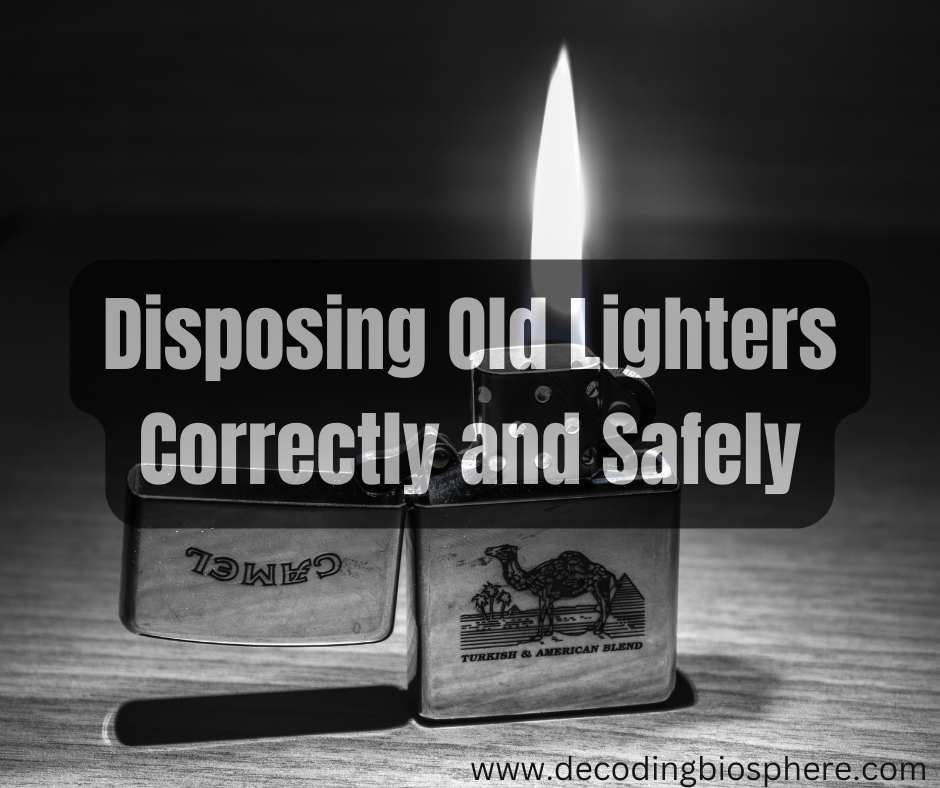Improper disposal of old lighters can have significant environmental impacts, making it crucial to understand the importance of correctly and safely disposing of them. This article aims to shed light on these environmental consequences and emphasize the need for responsible disposal practices.
Environmental Consequences of Improper Disposal
One of the major environmental issues associated with improper disposal of old lighters is pollution. Lighters often contain harmful chemicals and materials that can leach into the surrounding environment if not disposed of properly. For instance, disposable butane lighters typically contain butane gas, which is a greenhouse gas and contributes to global warming when released into the atmosphere. Moreover, these lighters also contain plastic components, such as the casing and the gas reservoir, which can take centuries to decompose if not managed correctly.
When old lighters are thrown into regular trash bins or end up in landfills, they can potentially contaminate soil and groundwater. The chemicals present in lighters can seep into the ground, polluting the soil and potentially making it unsuitable for agriculture or other purposes. If these chemicals reach groundwater sources, they can contaminate the water supply, posing risks to both human and animal health.
Also, improper disposal of old lighters can contribute to marine pollution. When lighters end up in bodies of water, such as rivers or oceans, they can be carried away by currents and become marine debris. Marine animals, including fish, turtles, and seabirds, can mistake lighters for food or become entangled in them, leading to injury or death. Plastic components of lighters can also break down into microplastics over time, further contributing to the pervasive issue of plastic pollution in our oceans.
Correct and Safe Disposal Methods
Considering these environmental impacts, it is crucial to dispose of old lighters correctly and safely. Here are some recommended methods:
- Recycling: One option is to recycle old lighters through appropriate channels. Some recycling facilities accept lighters, especially those that can be refilled or have refillable components. These facilities can properly handle the disposal of lighters and ensure that harmful chemicals are not released into the environment.
- Hazardous Waste Collection Centers: Another option is to contact hazardous waste collection centers or local authorities. These entities can provide guidance on safe disposal methods and direct individuals to designated collection points or events. It is important to follow their instructions to prevent any potential harm to the environment and human health.
Final Notes
In conclusion, the improper disposal of old lighters can have severe environmental consequences. Pollution, soil and groundwater contamination, marine pollution, and contribution to plastic waste are some of the key issues associated with it. By recycling old lighters or seeking guidance from hazardous waste collection centers, we can ensure their correct and safe disposal, mitigating these environmental impacts. Let us all take responsibility and adopt responsible disposal practices to protect our environment and preserve it for future generations.

